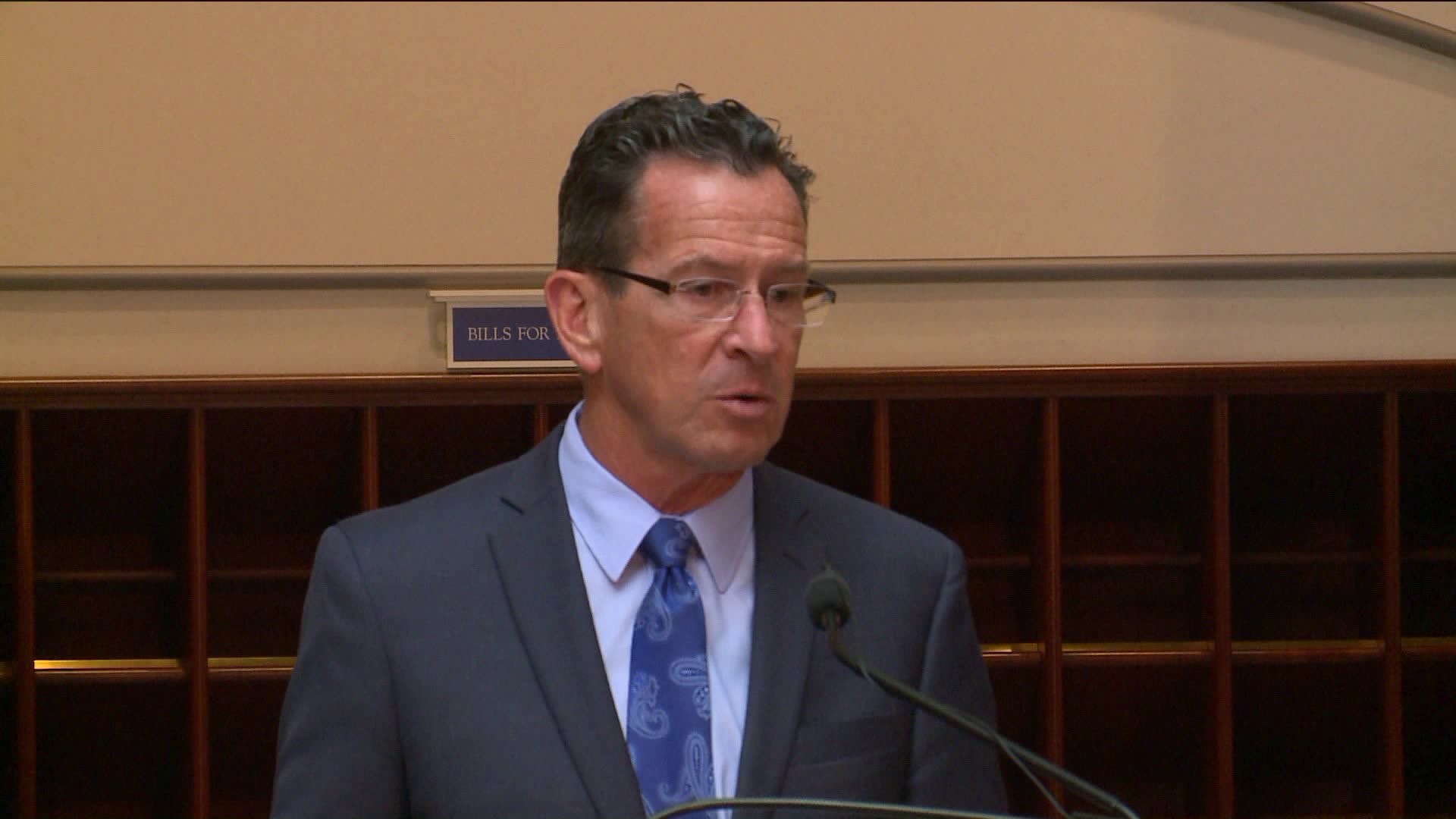HARTFORD — The state has begun the process of notifying some employees that they will be laid off.
"Layoff notices have started I’ve been telling you for weeks that they were and that we’re doing the work and we will continue to do that,” said Governor Dannel Malloy at a press conference Friday morning. "I think in the coming days you’re going to write a lot of stories about people who don’t want to see layoffs."
Numbers were not immediately made available regarding what departments or how many employees may have received notices.
The administration had to take immediate action to curb a more than $400 million current fiscal year deficit. The state is facing a projected budget deficit of more than $4 billion over the next two years.
"What matters is the state is going off a fiscal cliff here very soon. We need to do something about it right away,” said State Sen. L Scott Franz, R-Greenwich.
Republicans and the governor have been very vocal about state spending and are looking to curb it in an upcoming budget proposal.
Lawmakers have been leaning heavily on state labor unions to provide more than $700 million in concessions.
"They value not only their jobs, but they also value the work they do for the state of CT and if it's within their ability to come up with concession packages that make sense for them and the state of CT, I'm sure they will," said State Rep. Joe Aresimowicz, Democratic House Speaker.
All this comes as FitchRatings announced Friday afternoon it has lowered the state's bond rating from AA- to A+.
In a statement, FitchRatings says:
The downgrade of Connecticut's IDR and related ratings is based on reduced expectations for economic and revenue performance over the medium term and the deterioration in Fitch's assessment of the state's through-the-cycle fiscal flexibility, which has suffered from the need to address chronic economic and fiscal challenges during a prolonged period of national economic expansion.
Despite a demonstrated commitment to identifying structural solutions to budget shortfalls, the state's ability to manage is constrained by a comparatively high liability burden that reduces its scope of flexibility. The state remains pressured by revenue collections that are failing to keep pace with rising expenditures, as evidenced in the recent downward revision to its revenue forecast for the current and future fiscal years.
After addressing the newly forecast budget gap for the current year, the state will be left with no reserve cushion and more limited tools to address already projected budget shortfalls for coming years and the expected effects of future economic downturns.
The fiscal year ends June 30th. State leaders are scheduled to meet for a budget negotiating session next Wednesday.

